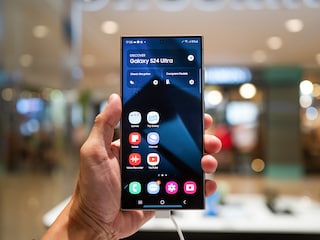Tech5: India seeing smartphone 'premiumisation'; at Dow Jones index, Nvidia is i...
Forbes India's daily tech news bulletin with five headlines that caught our attention


Early festive season sales and proactive stock filling by original equipment manufacturers (OEMs) helped fuel the volume growth, though the start of festive sales was slower compared to 2023. Samsung led the market in value with a 23 percent share, prioritising its flagship Galaxy S series and integrating artificial intelligence (AI) features into its mid-range models, Counterpoint notes.
Apple followed with a 22 percent value share, bolstered by strong shipments of the iPhone 15 and iPhone 16. The brand’s push into smaller cities and its aspirational image have strengthened its position as the top choice for premium buyers in India. The market shift towards higher-priced smartphones is supported by aggressive EMI offers and trade-ins, reflecting growing consumer investment in premium devices, according to Counterpoint.
This change removes Intel from the index after a 25-year reign. Intel’s latest quarterly earnings results that came out last week led to some investor optimism that the company may yet be able to regain some of the manufacturing edge and the market share it has lost over the years. However, initial projections for Intel’s vaunted AI chip, called Gaudi, show it’s not getting the traction the company had hoped for.
The company also reported a record net income of $144 million. Palantir raised its 2024 revenue forecast to $2.81 billion. This beat analyst predictions, according to Bloomberg. Palantir’s US commercial business grew 54 percent, while US government sales rose 40 percent, fuelled by defence spending and its AI tools continue to gain traction.
“We absolutely eviscerated this quarter, driven by unrelenting AI demand that won’t slow down. This is a US-driven AI revolution that has taken full hold. The world will be divided between AI haves and have-nots," said Alexander C Karp, co-founder and CEO, in a company press release on the earnings.
Important obligations under the DMA include allowing users to set default web browsers of their choice, supporting alternative app stores, and enabling third-party accessories like headphones and smart pens to access iPad features. The Commission will also consider feedback from stakeholders during its review. The DMA, which took effect earlier this year, carries penalties of up to 10 percent of a company’s global revenue for non-compliance.
This marks a significant decline from Ola’s $7.3 billion valuation in late 2021. The revision follows previous cuts by Vanguard, including one in August 2023, which pegged Ola’s value at $2.6 billion. Ola, founded by Bhavish Aggarwal in 2010, competes with rivals such as Uber and Rapido in India’s ride-hailing market.
Aggarwal’s other ventures include Ola Electric, which went public earlier this year with a $4.2 billion market cap, and AI startup Krutrim, which raised its first funding round at a valuation of $1 billion, TechCrunch notes.
First Published: Nov 05, 2024, 10:28
Subscribe Now